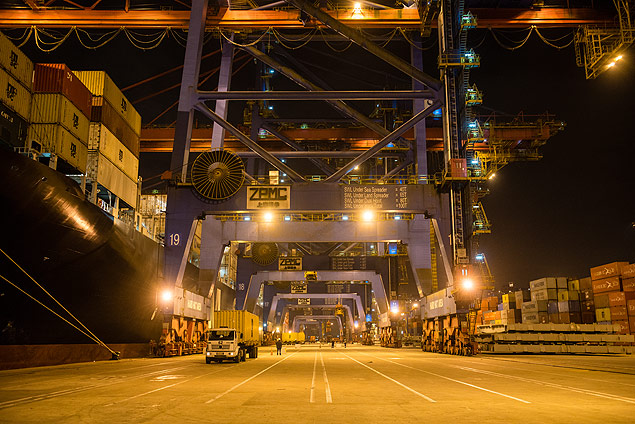Latest Photo Galleries
Brazilian Markets
17h31 Bovespa |
+1,09% | 128.509 |
16h43 Gold |
0,00% | 117 |
17h00 Dollar |
-0,83% | 5,0697 |
16h30 Euro |
+0,49% | 2,65250 |
ADVERTISING
Deals With US and Europe Could Increase Brazil´s Trade by 18%
03/26/2014 - 09h26
Advertising
RAQUEL LANDIM
FROM SÃO PAULO
If Brazil had the key to the two largest markets in the world (the US and Europe) it would see its foreign trade jump 18% or US$ 86 billion a year.
The net result of these two free trade agreements would however create a deficit of US$ 600 million as exports would grow US$ 42.8 billion while imports would increase by $ 43.4 billion.
The calculations were done by professors Vera Thorstensen and Lucas Ferraz of the Getulio Vargas Foundation for the Institute of Industrial Development Studies (IEDI), that brings together 44 leaders of large companies such as Embraer, Gerdau, CSN and Cosan.
The researchers took in to account a 100% reduction in industrial tariffs, 70% in agricultural tariffs and a 25% drop in tax barriers to trade such as customs paperwork as well as technical and sanitary requirements.
They used mathematical models from the Global Trade Analysis Project, a global network that collects data for 57 sectors in 153 regions. For the technical barriers they referred to a European Commission study.
An agreement with Europe which has been under negotiation for the past 14 years and which has now become a priority for the Dilma administration would generate US$ 28.1 billion in exports and US$ 28.1 billion in imports.
The deal with the United States, who are currently off the government´s radar, would mean US$ 14.7 billion in exports and US$ 15.3 billion in imports.
"The agreements could generate a deficit in the short term but they are the only way for us to integrate the global production chain and improve our productivity. We cannot isolate ourselves," said Pedro Passos, IEDI president and Board Member of Natura.
The Foreign Affairs Ministry announced that Brazil has "a wide range" of agreements with Latin America, free trade agreements with Israel, Palestine and Egypt and partial agreements with India and South Africa. It is also negotiating with Europe.
Businessmen complain of the deals´ scope and say that the country is lagging behind. Industry is in favour of freeing up the market even if predictions suggest many sectors could lose out and will need time to adapt.
"We need to negotiate on many fronts at the same time to have more bargaining power. That way you can create competition for your market and gain more concessions," said Diego Bonomo, Executive Manager of the National Confederation of Industry. Deals with the US, EU, Japan, Canada and Mexico are a priority, he says.
The IEDI study also considered free trade agreements with eight more countries including China, Russia and South Africa. But the effects of trade liberalization with the US and EU are far more important.
TECHNICAL BARRIERS
As import tariffs in rich countries are low, it is with the technical and environmental restrictions where half the profits are to be made. "Brazil´s foreign trade policy is out of date. There is not point negotiating tariffs when the world is discussing regulations," said Thorstensen.
As was revealed to Folha by Brazilian negotiators who preferred to remain anonymous, the country has already adopted its new agenda. The deal with the EU plans to drop technical and sanitary barriers but the negotiations remained locked on the issue of tariffs.
The two parties were unable to reach an agreement at a meeting in Brussels last week.
Translated by MILLI LEGRAIN
Read the article in the original language
| Avener Prado/Folhapress | ||
 |
||
| If Brazil had the key to the US and European markets it would see its foreign trade jump US$ 86 billion a year |



